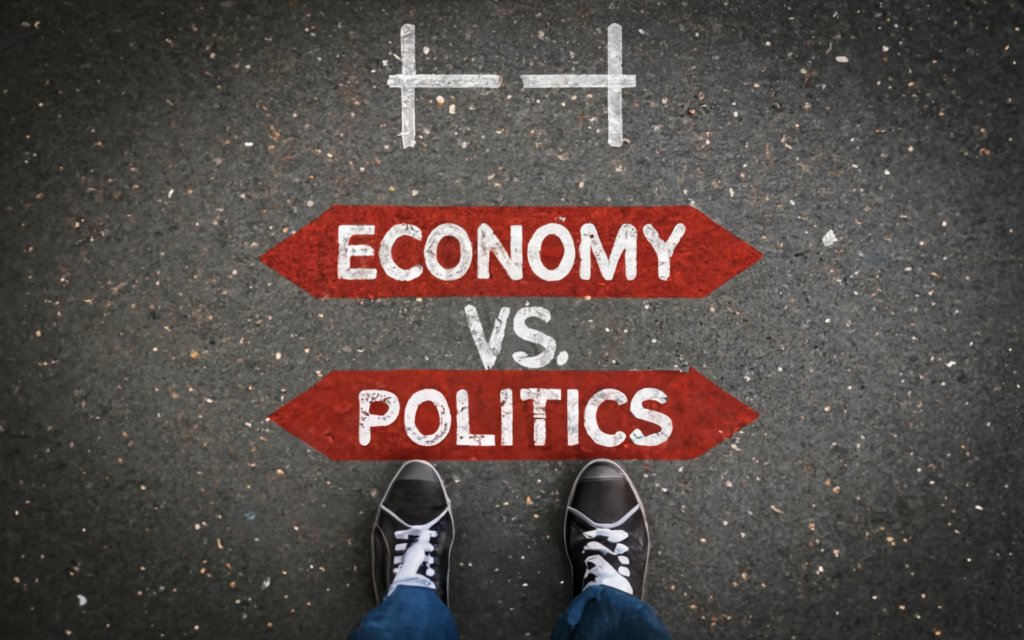As the 2024 election season unfolds, the United States showcases a robust economic landscape, marked by record-high stock markets, low unemployment rates, declining inflation, and a resurgence of real wage growth to pre-pandemic levels. Even with these positive indicators, President Joseph R. Biden Jr.’s approval ratings hover around 40 percent, a puzzling scenario given the traditionally held belief that good economic stewardship boosts political fortunes.
This article is a summary. Please read the original article by Cullen S Hendrix on the Peterson Institute for International Economics think tank website, here
The Paradox of Prosperity and Political Approval
Why is President Biden not receiving political credit for overseeing a thriving economy? This conundrum has sparked extensive debate among economists and political analysts. While some argue that it’s only a matter of time before economic success translates into higher approval ratings, others point to the intensifying partisanship within the U.S. political landscape. Voters increasingly base their judgments on social issues and identity politics rather than economic performance. This shift not only threatens social cohesion and democratic values but also undermines the foundational role of economic success in political evaluation.
Economic Voting: A Changing Landscape
Historically, economic voting theory suggested that voters reward or punish political leaders based on the country’s economic health. This was evident in past U.S. elections and across democracies worldwide. However, recent trends indicate a weakening connection between presidential approval and economic indicators like gas prices, which once directly influenced voters’ perceptions of presidential performance. Moreover, the phenomenon of a president not being re-elected despite presiding over a prosperous economy, as seen in the case of Donald Trump, further underscores the evolving dynamics of economic voting.
Hyperpartisanship and Its Implications
The rise of hyperpartisanship plays a significant role in diluting the impact of economic realities on political preferences. With partisan identities becoming more entrenched, voters are less influenced by objective economic conditions and more by their partisan lenses. This shift has profound implications, leading candidates to focus more on divisive social issues rather than economic policies. Such a strategy not only deepens societal divisions but also opens the door to economically detrimental policies, posing risks to the U.S. economy and its global standing.
The 2024 Election: Economic Prosperity vs. Political Realities
The upcoming presidential election presents a stark example of how economic prosperity does not guarantee political approval in today’s hyperpolarized environment. The focus on protectionist policies and the neglect of economic stewardship in political discourse could have far-reaching consequences for the U.S. economy and its workforce.
In conclusion, the disconnection between economic prosperity and political approval in the 2024 election season highlights a critical challenge facing American democracy. As hyperpartisanship continues to shape political narratives, the true value of economic success in securing political approval remains uncertain. This trend not only poses questions about the future of economic policy but also about the broader implications for democratic engagement and social harmony.
